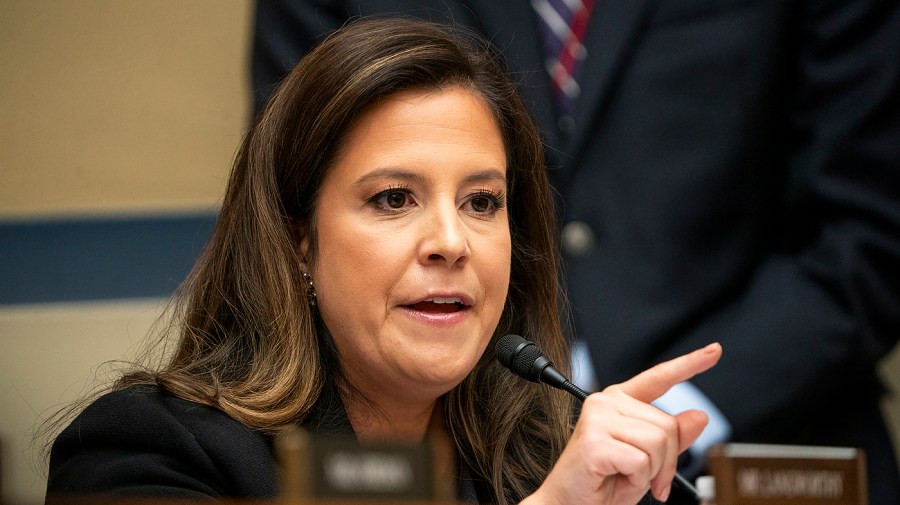The move by President-elect Trump to tap several House Republicans to fill positions in his Cabinet and beyond has set off a fresh round of special elections next year to replace them.
Trump chose Reps. Mike Waltz (R-Fla.) and Elise Stefanik (R-N.Y.) to be his national security adviser and U.S. ambassador to the United Nations, respectively. The president-elect also tapped former Rep. Matt Gaetz (R-Fla.) to be his attorney general, though Gaetz later withdrew from being considered amid concerns over Senate holdouts. Gaetz, however, decided against returning to Congress.
Here’s a look at what to know about the upcoming special elections for each of these outgoing or former lawmakers.
Former Rep. Matt Gaetz (R-Fla.)
Trump initially tapped Gaetz to be his pick for attorney general — raising questions almost immediately about whether the conservative firebrand and Trump loyalist would be able to clinch enough votes during Senate confirmation.
The House Ethics Committee has been probing Gaetz over whether he engaged in sexual misconduct and illicit drug use, among other aspects, though the Florida Republican denies any wrongdoing.
Gaetz’s office announced last year that a separate sex-trafficking probe conducted by the Justice Department did not result in any charges against the Florida Republican.
He resigned from the House quickly after Trump’s announcement in preparation for the nomination, but some Senate Republicans signaled he had an uphill battle, as some members of the party wanted to see the committee release its findings about the ex-congressman.
Gaetz later dropped his nomination bid amid questions over his Senate confirmation path but also reiterated he would not be rejoining Congress, leaving his seat in Florida’s 1st Congressional District open.
Gaetz’s district includes the northwestern tip of the state, including all of the Santa Rosa, Okaloosa, and Escambia counties in addition to some of Walton County. Florida set the date for the special election to fill Gaetz’s seat, with the primary for the special election taking place Jan. 28 and the special general election being held April 1.
A handful of GOP candidates are running for the seat, including former Navy and Air Force pilot Greg Merk, state Rep. Joel Rudman, former Escambia County Commissioner Gene Valentino, business owner Bernadette Pittman, management consultant and fighter pilot Jeff Witt, Florida Chief Financial Officer Jimmy Patronis, epidemiologist Uloma Ekpete Kama and teacher Kevin Gaffney.
The president-elect has already waded into the primary to endorse Patronis.
There are also several Democrats running, though the seat leans heavily Republican.
Rep. Mike Waltz (R-Fla.)
Trump selected Waltz to be his national security adviser, and the Florida Republican is expected to resign from Congress on Jan. 20. His appointment doesn’t require Senate confirmation.
Walz represents Florida’s 6th Congressional District, which is sandwiched between Jacksonville and Orlando and includes Palm Coast and Daytona Beach.
The primary for the special election to replace Walz will also be held Jan. 28, with the special general election scheduled for April 1.
Trump endorsed Florida state Sen. Randy Fine (R) to run for the district, which is also comfortably red, prompting some contenders, declared and prospective, to drop their bids.
Fine, a former ally of Gov. Ron DeSantis (R), garnered attention last year when he decided to change his endorsement in the GOP presidential primary from DeSantis to Trump, arguing the Florida governor had not done enough to tackle antisemitism.
The DeSantis campaign called the switch “shameful political theater” and argued that “when it comes to standing in defense of Israel,” DeSantis has “always been a leader who acts and delivers.” DeSantis lost to Trump during the GOP contest.
Rep. Elise Stefanik (R-N.Y.)
Trump nominated Stefanik to be the U.S. ambassador to the U.N., leaving a void in New York’s 21st Congressional District, which encompasses the northernmost tip of the state, largely bordering Canada and Vermont.
Stefanik has been ardent supporter of Trump and gained prominence last year when she grilled university presidents over antisemitism on college campuses during a House hearing, drawing praise from both sides of the aisle.
Stefanik has not yet resigned from Congress or publicly outlined when she expects to officially step down. Her role requires Senate confirmation.
Among the names that have been floated as potential candidates include Rep. Marc Molinaro (R-N.Y.), who lost reelection New York’s 19th Congressional District last month; Assembly Members Chris Tague and Robert Smullen; and state Sen. Dan Stec, among others, according to Spectrum News 1.
Cannabis tax attorney Paula Collins, the who lost to Stefanik last month in the 2024 general election, has thrown her name in the ring on the Democratic side.
Unlike in Florida, where the state holds primaries for a special election, parties choose their candidate to run in New York special elections.
Hochul is required by law to set the date for a special election within 10 days of Stefanik announcing her resignation, and the special election must happen within 70-80 days.
One variable looming over the race is whether Trump will weigh in and endorse a candidate before Republicans choose their replacement.
Though the district is GOP-leaning — it went for Trump by close to 16 points in 2020 – it’s also been represented by a Democrat more recently, too. Former Rep. Bill Owens (D) preceded Stefanik in representing the district.
